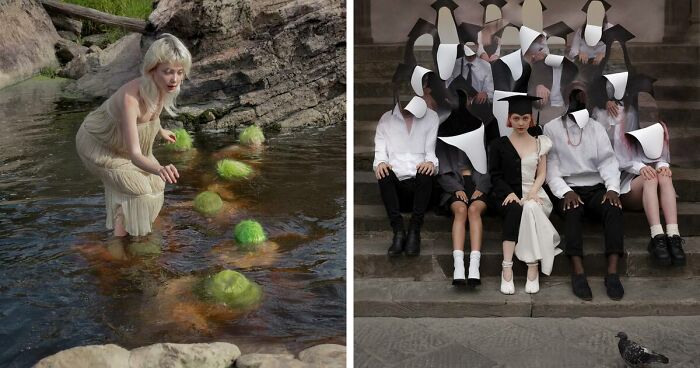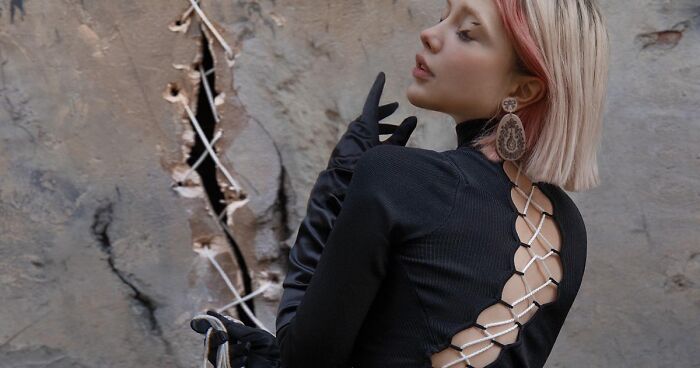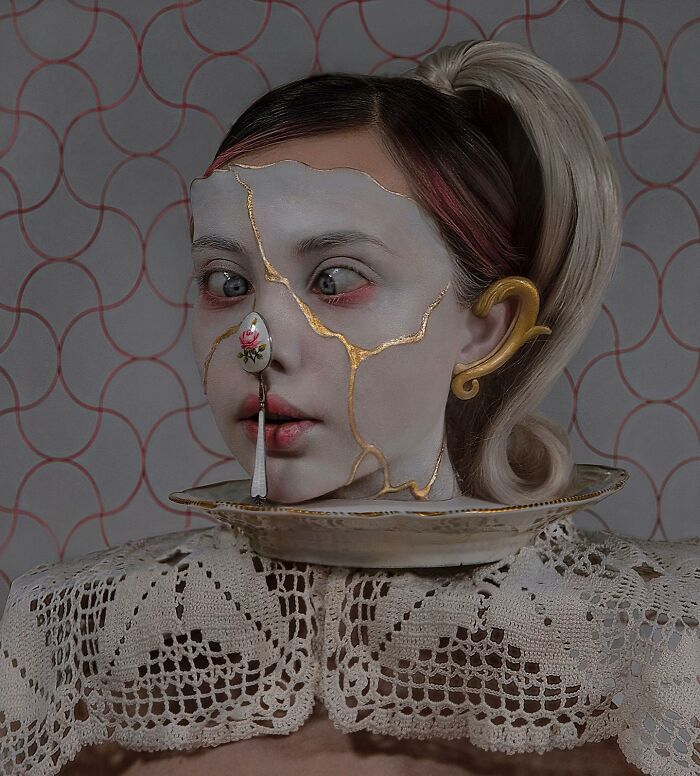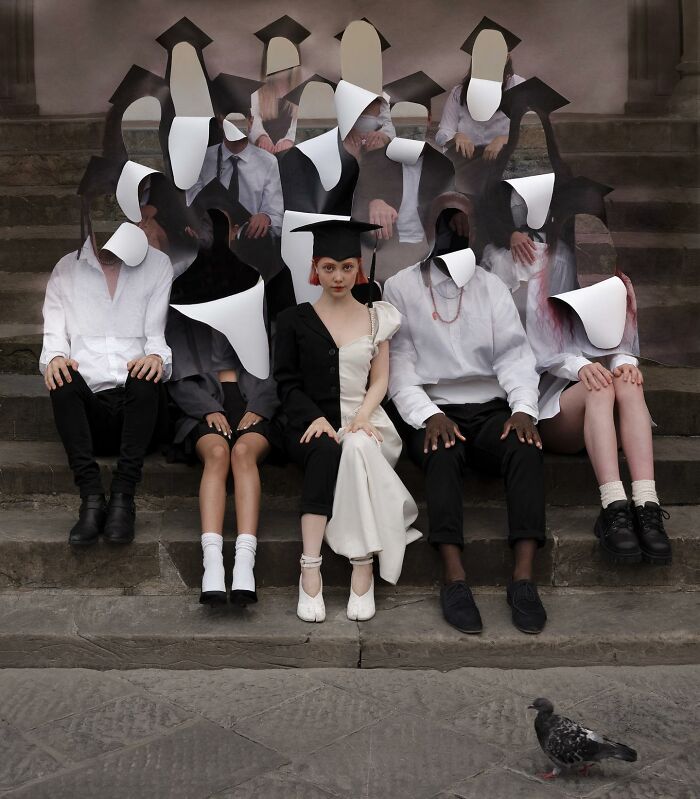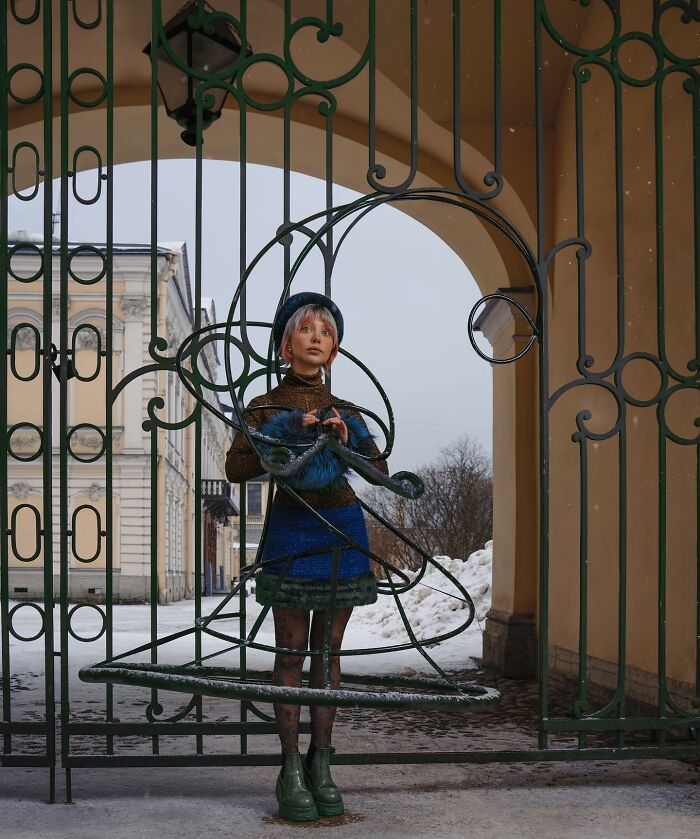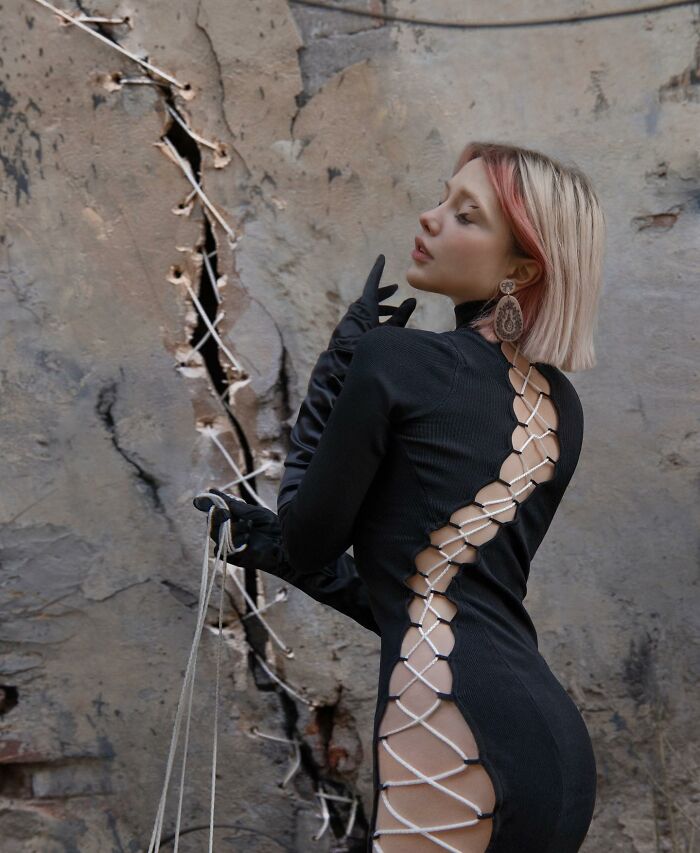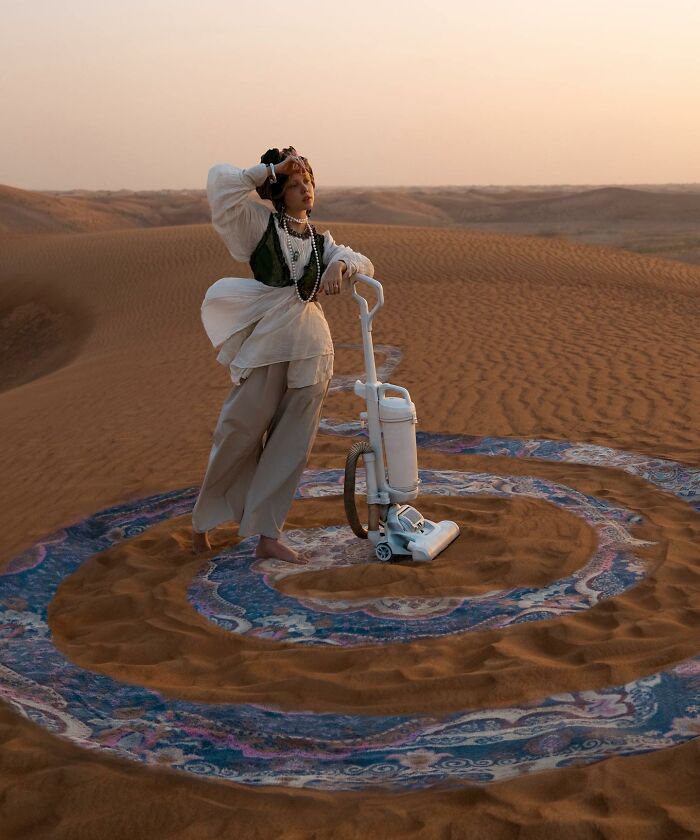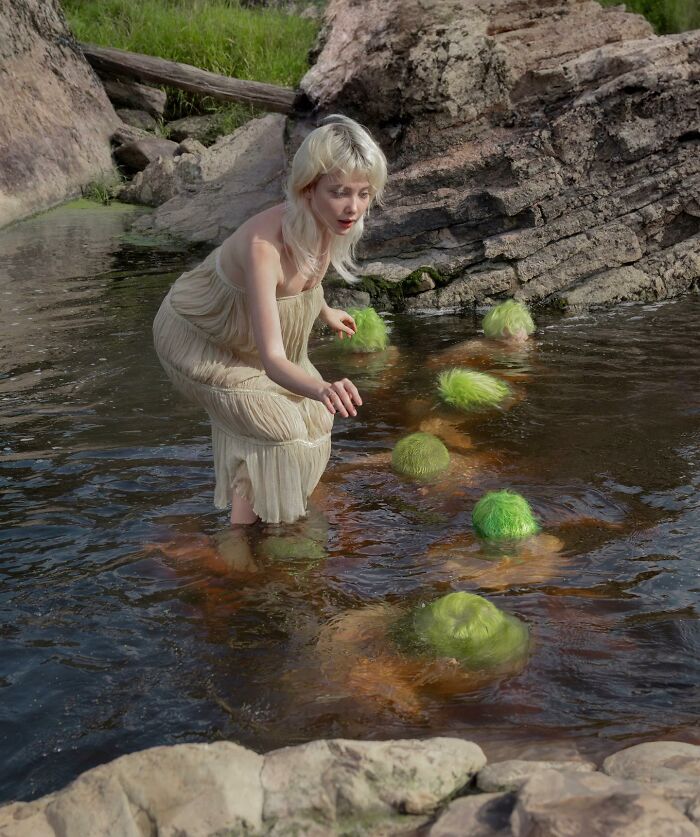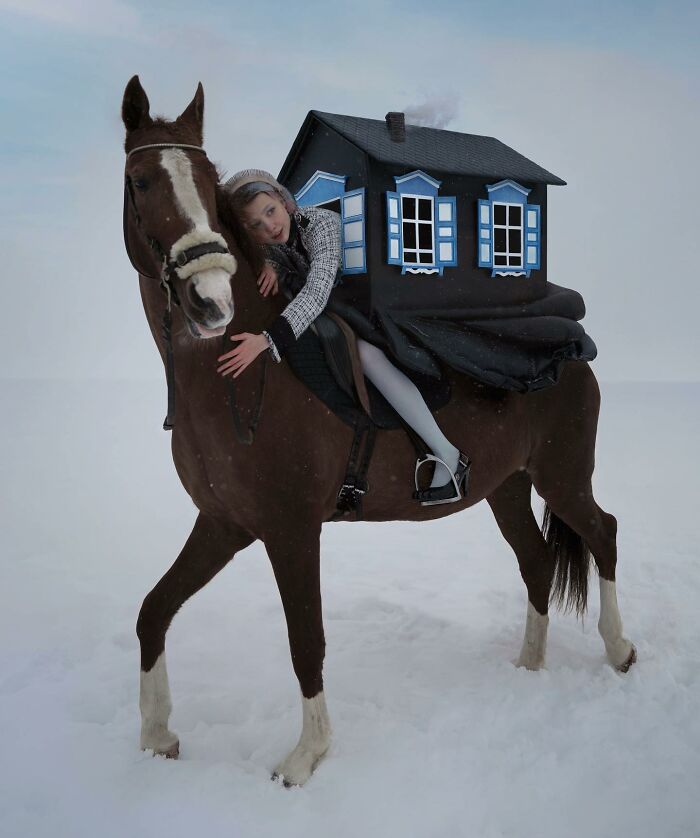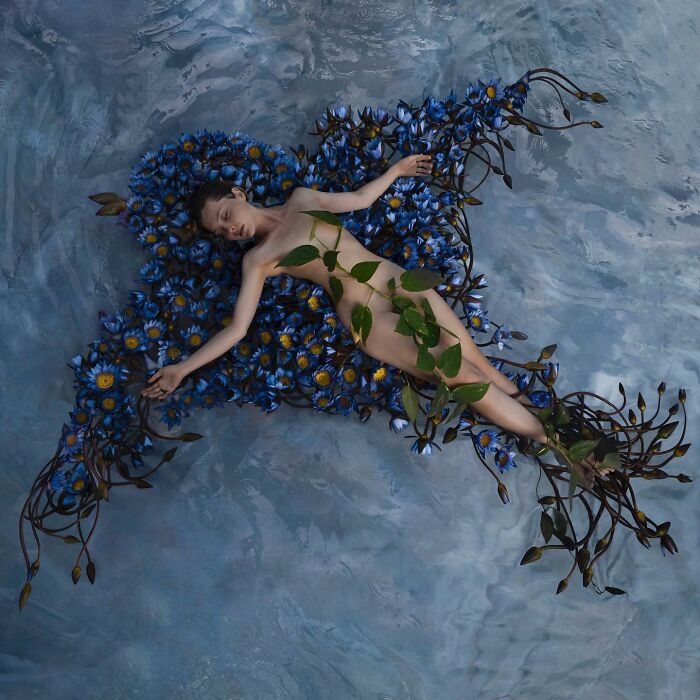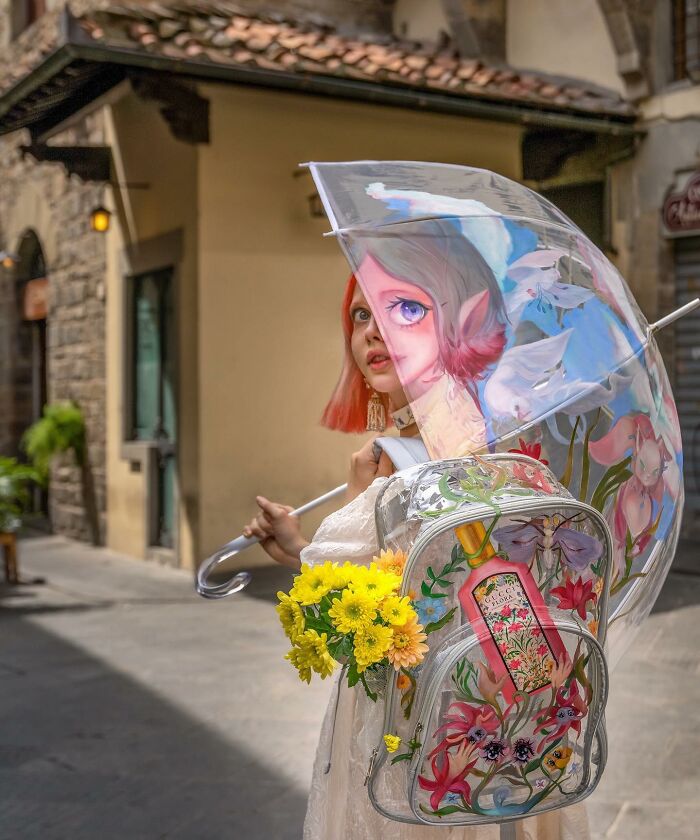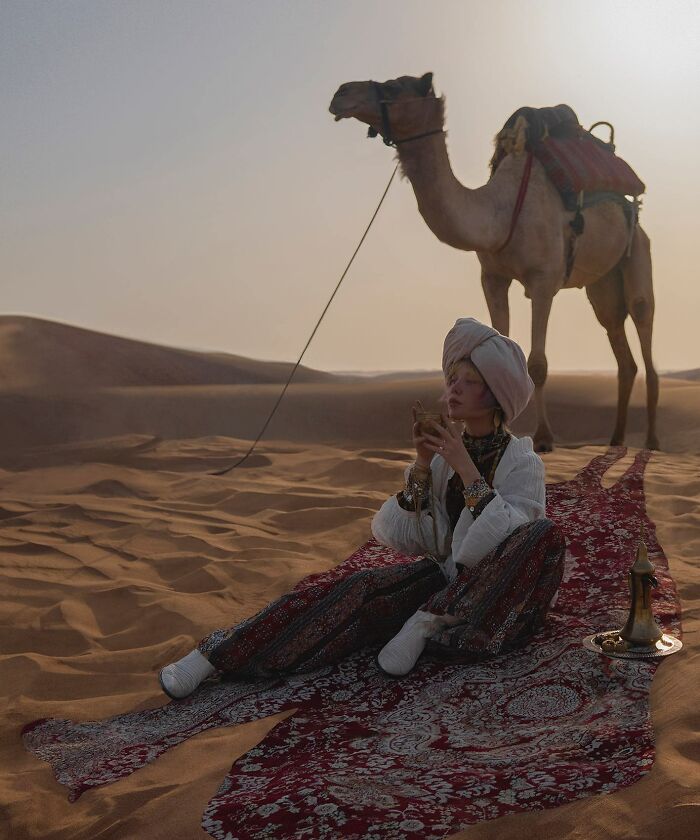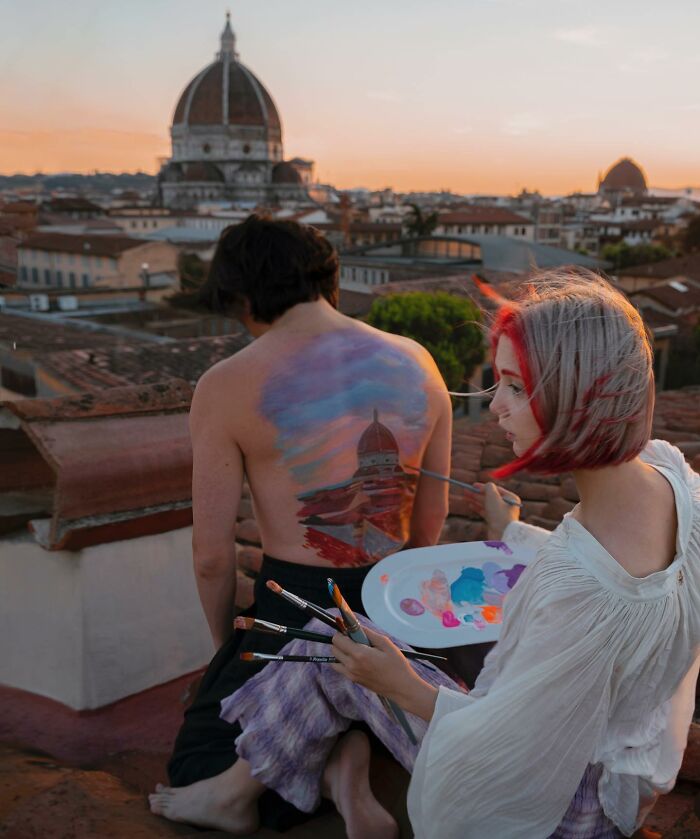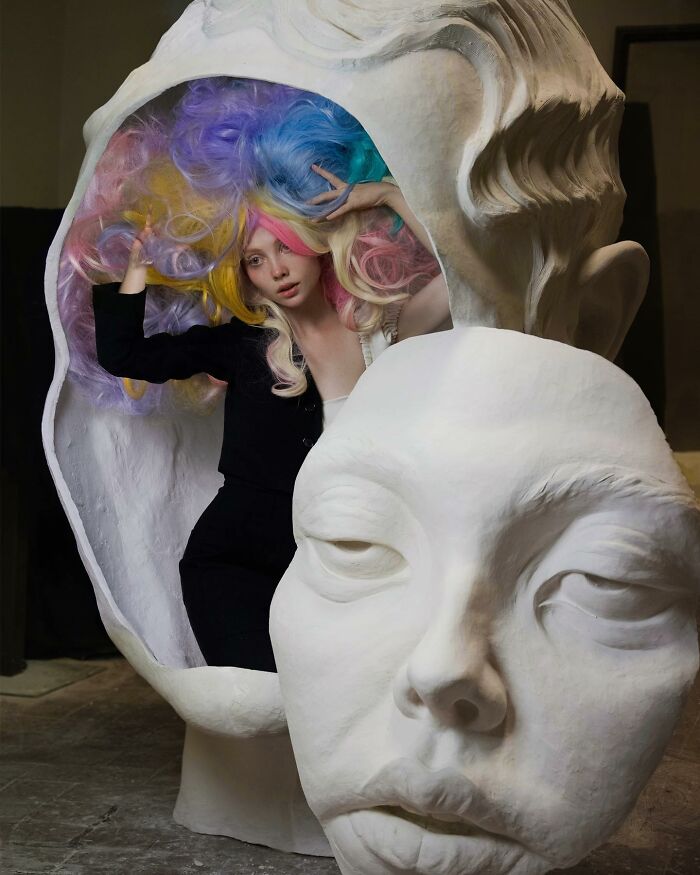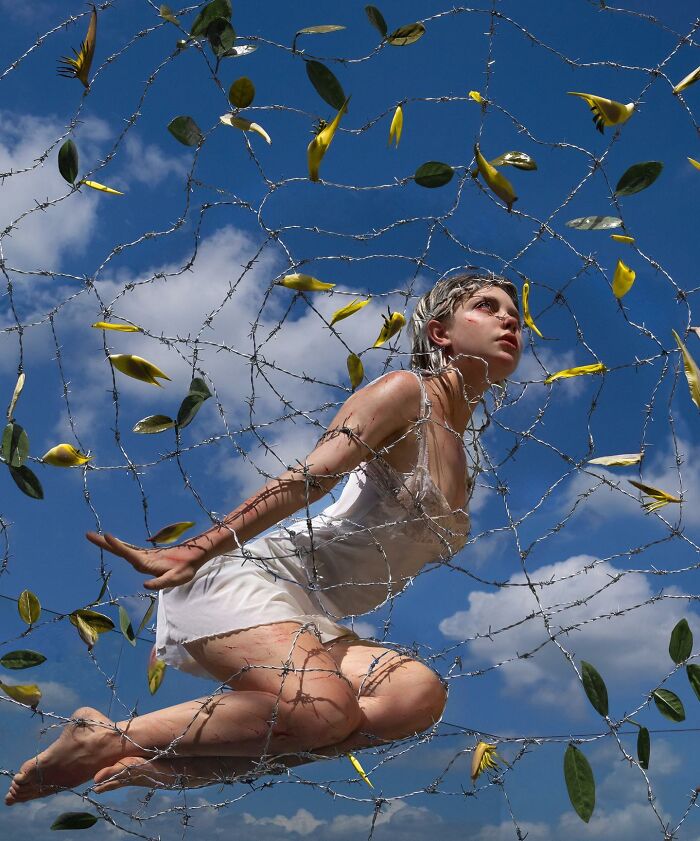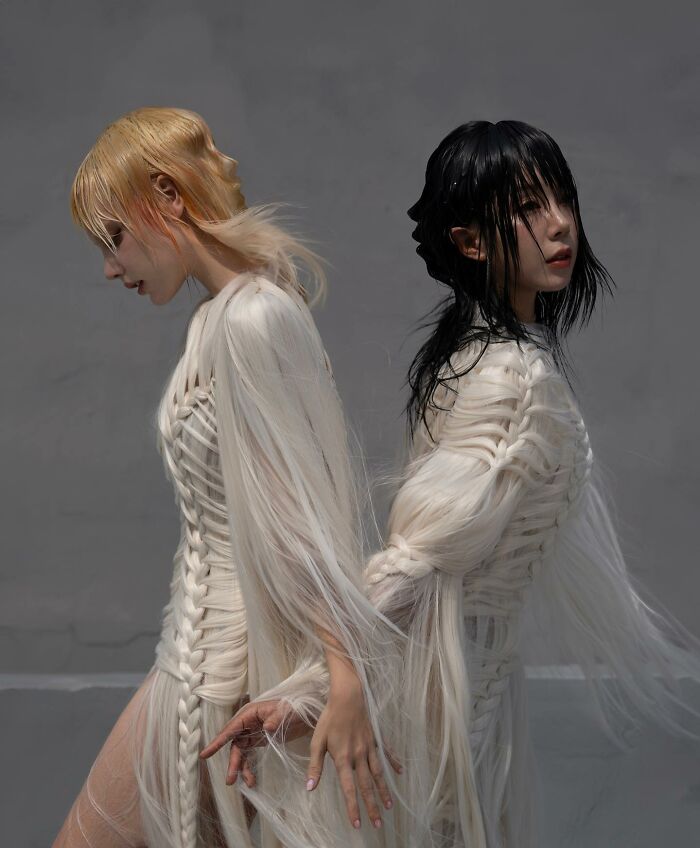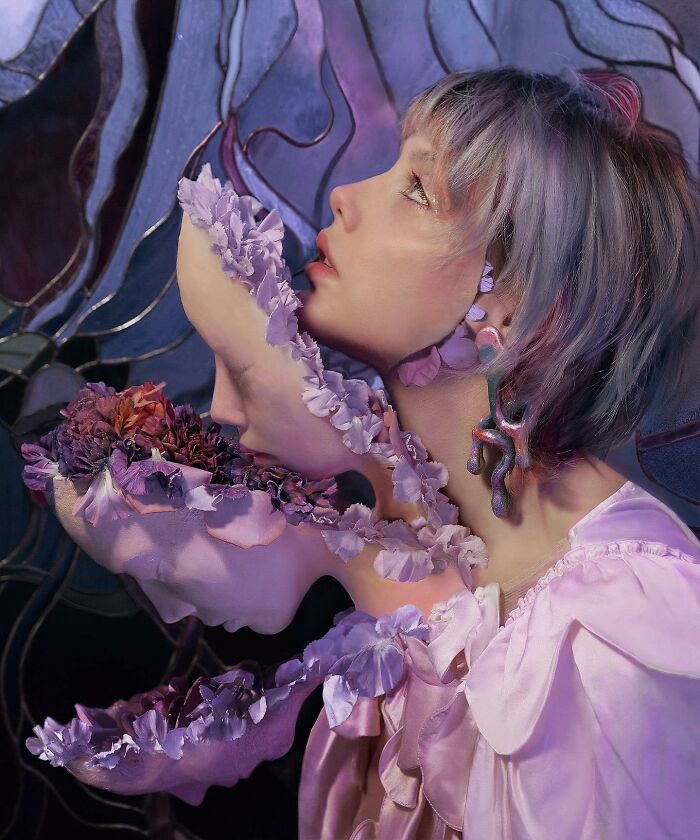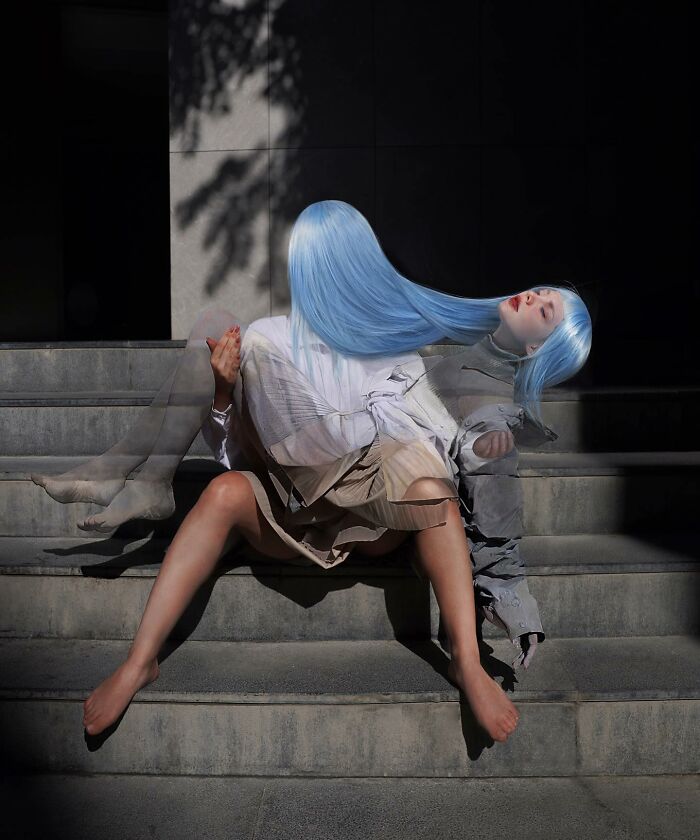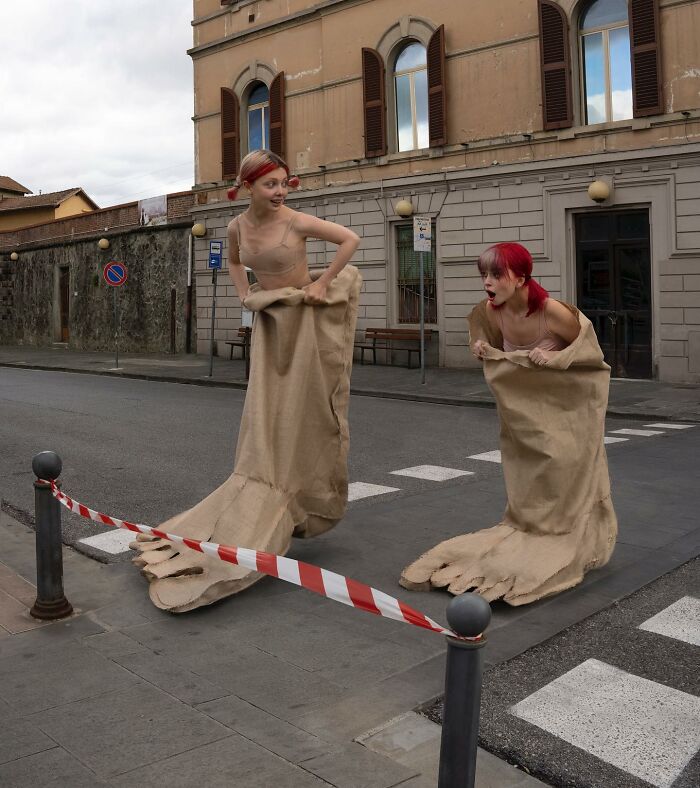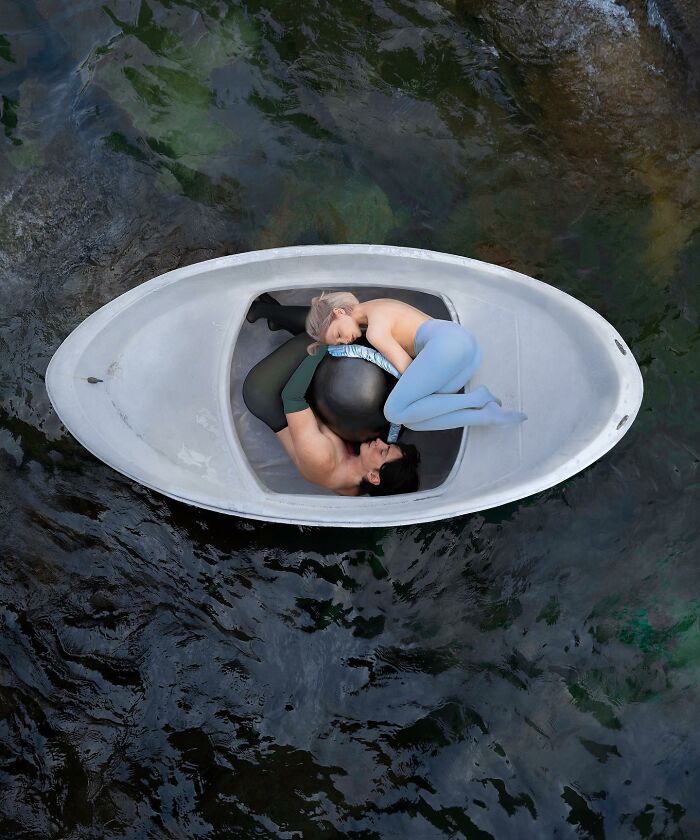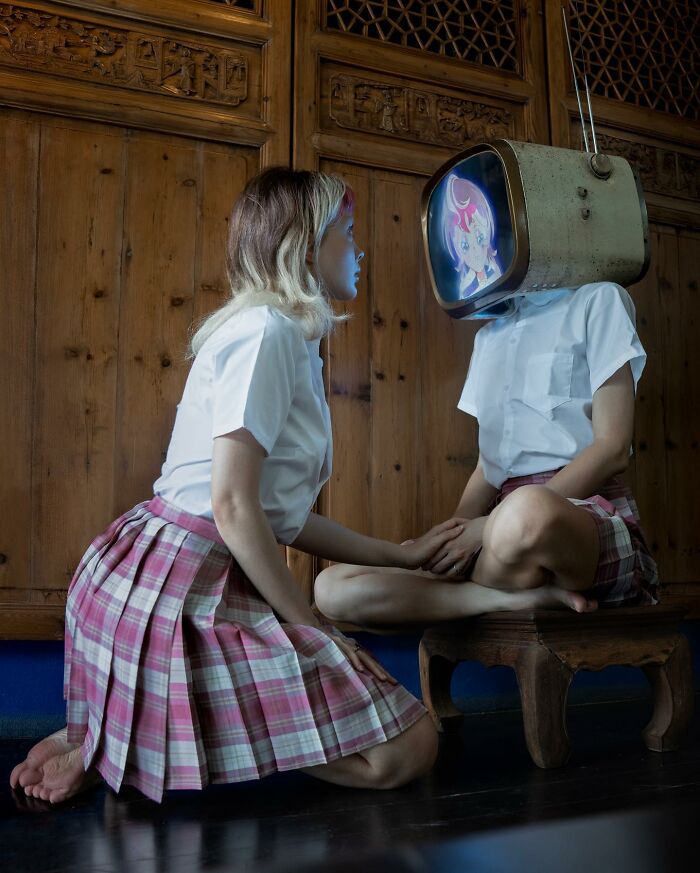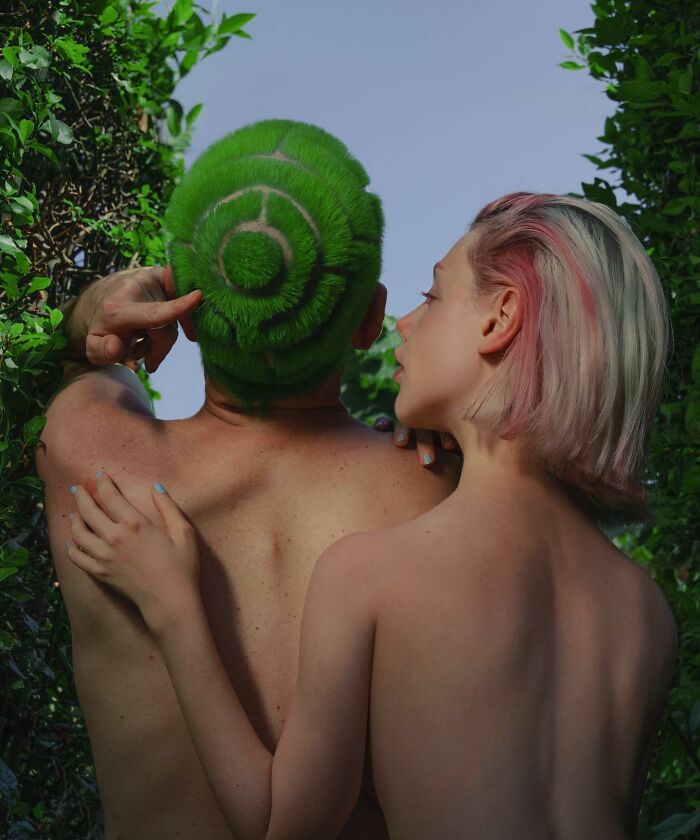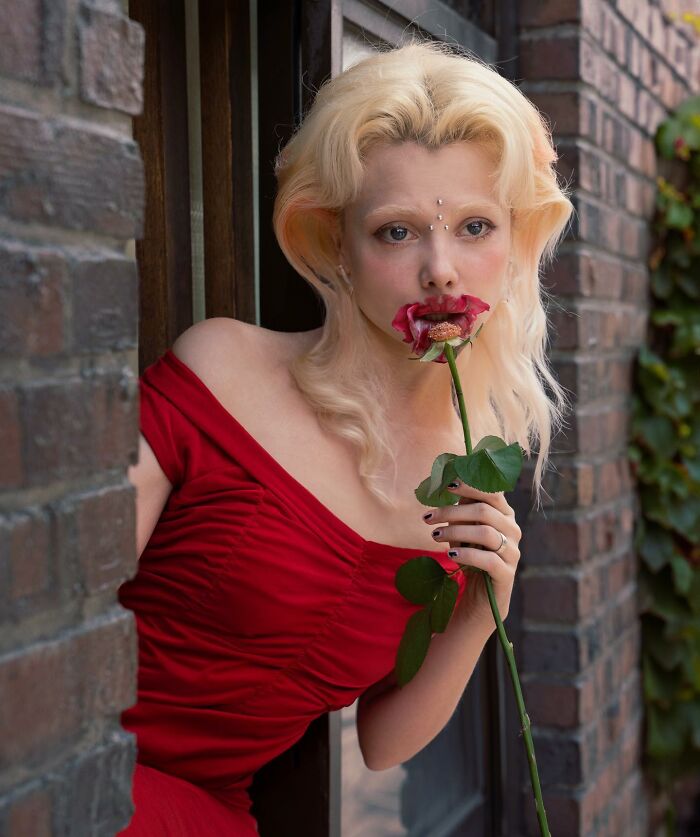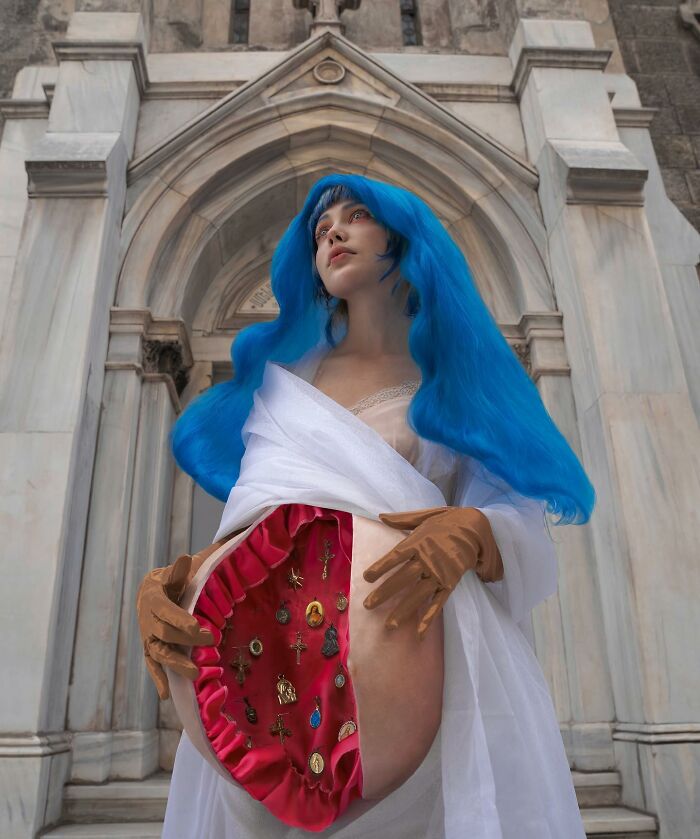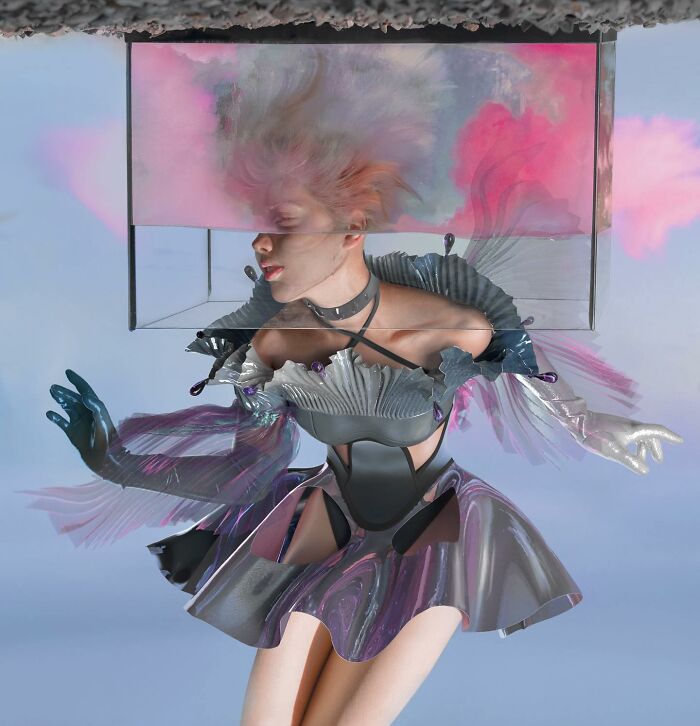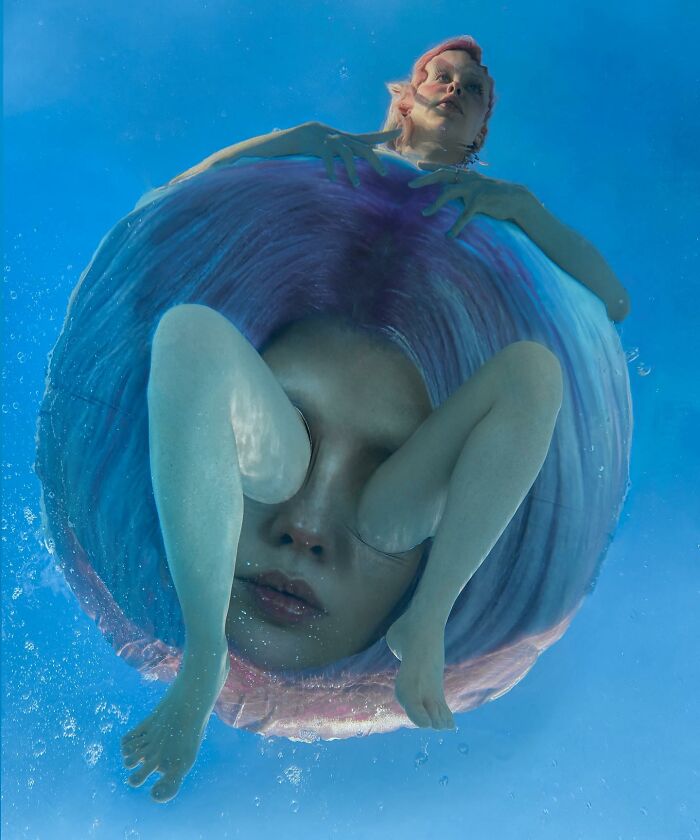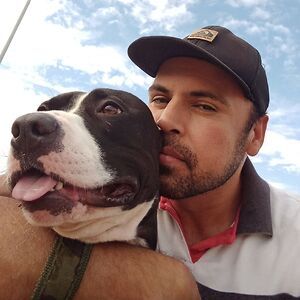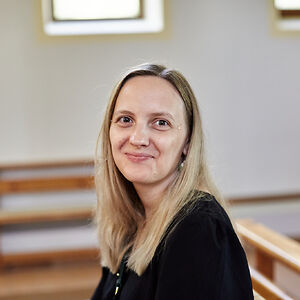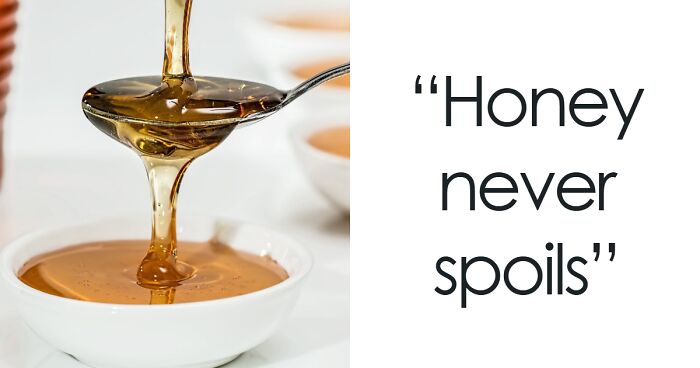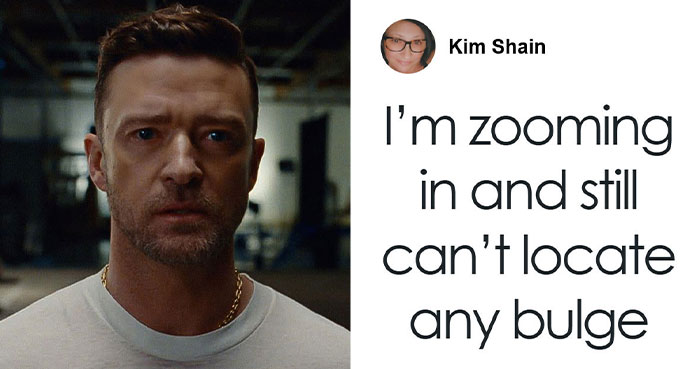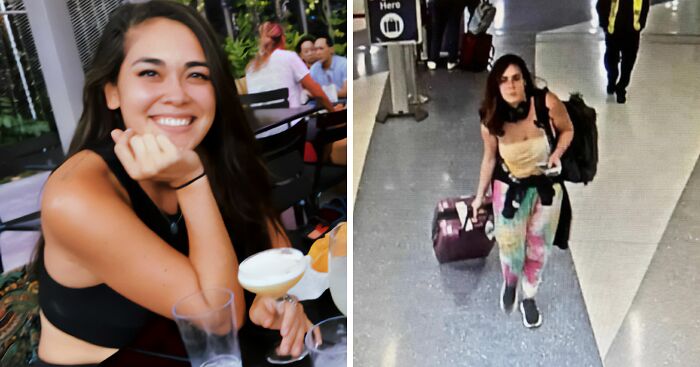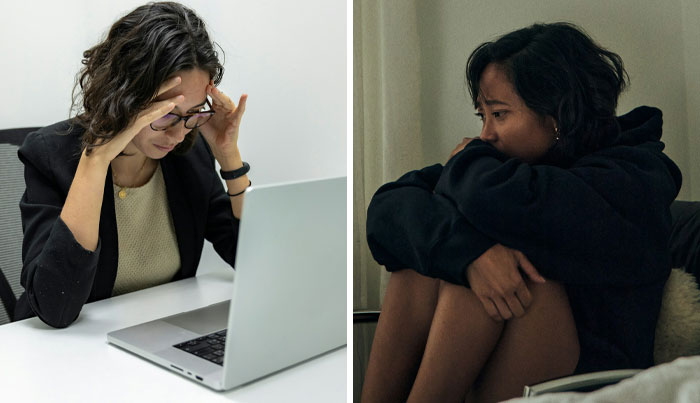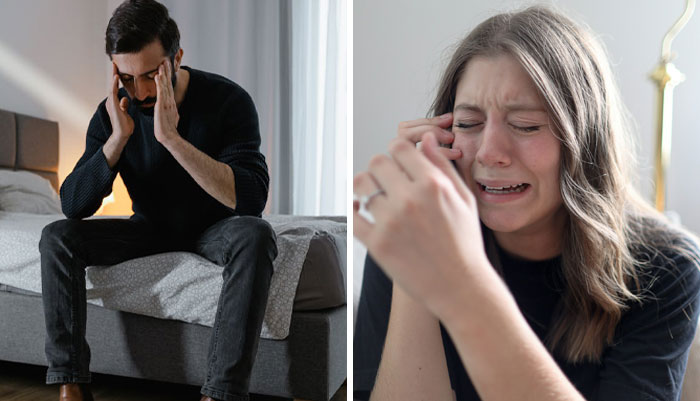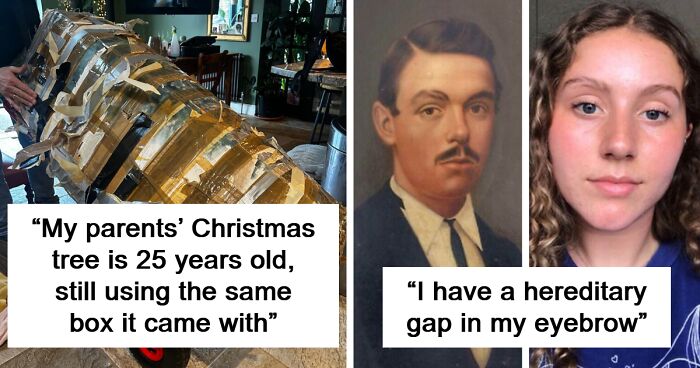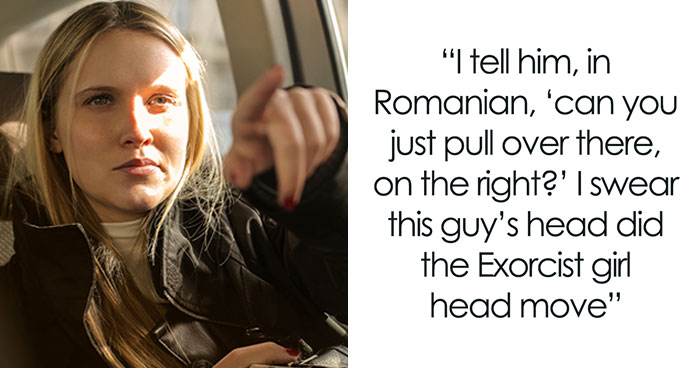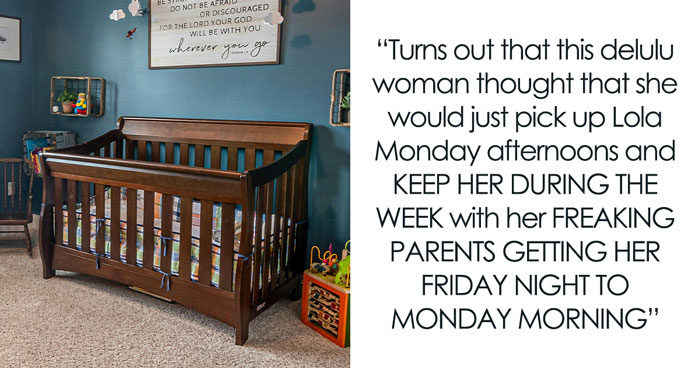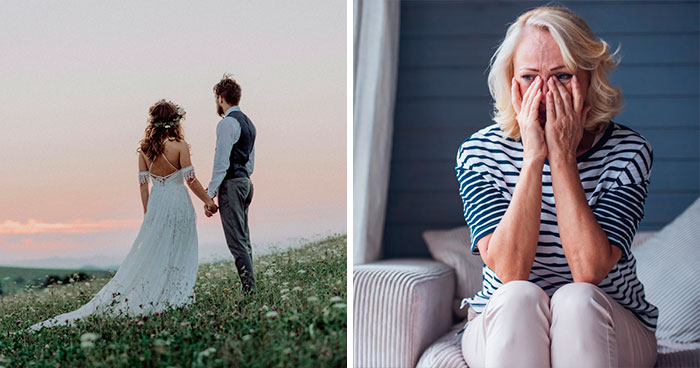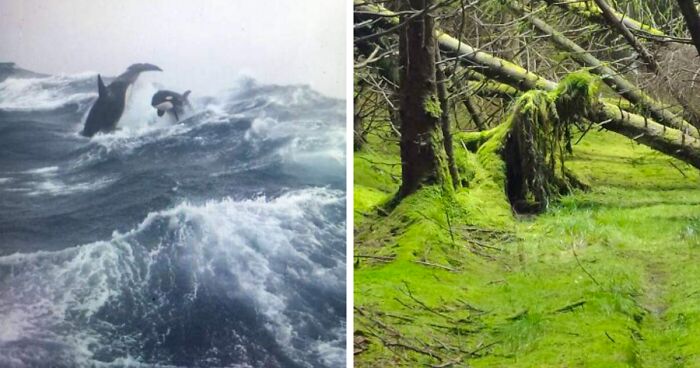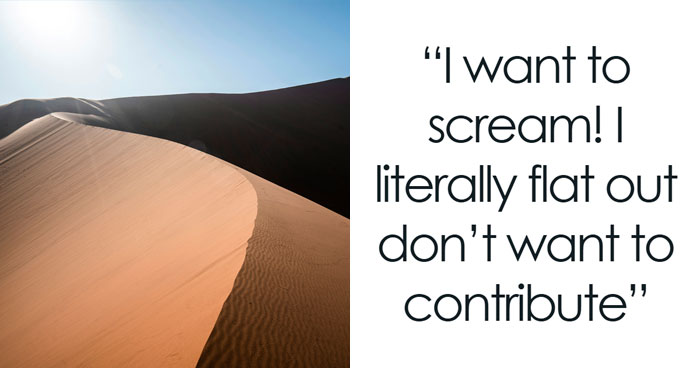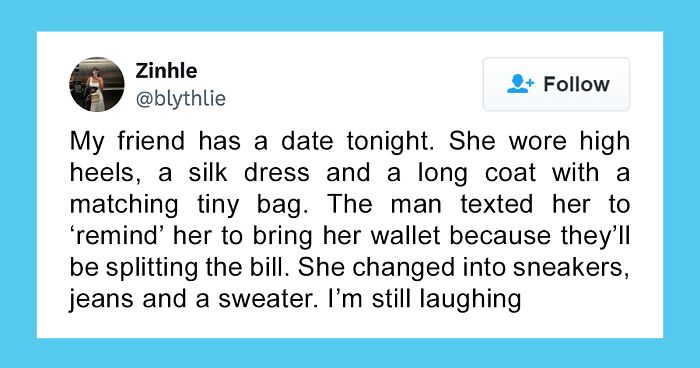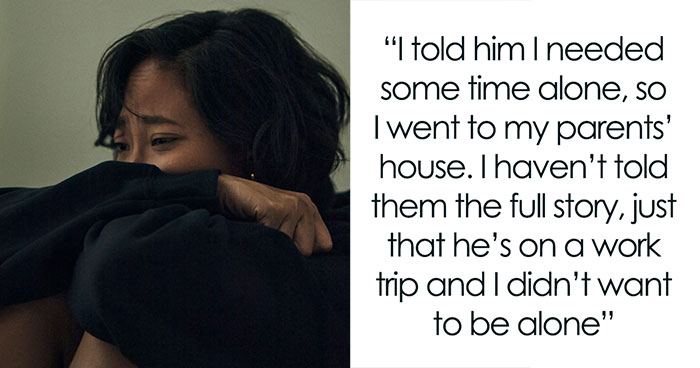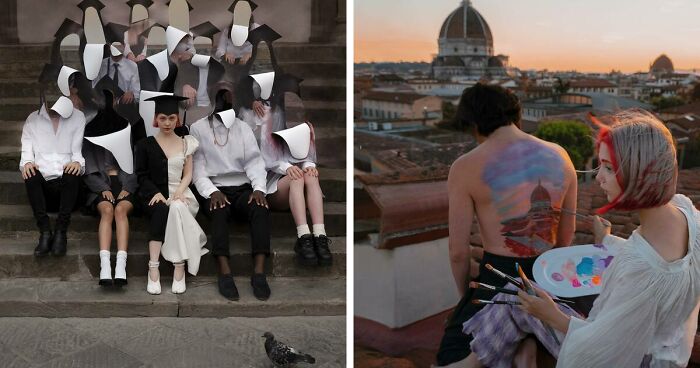
26Kviews
24 Mind-Bending Photo Manipulations By Ellen Sheidlin (New Pics)
Interview With ArtistEllen Sheidlin experiments with realism, virtuality, and her dreams to create the most unique and confusing artworks that she describes as a new direction of art called survirtualism.
By combining her knowledge of photography, modeling, digital art, fashion, and makeup, Ellen creates a complex and fascinating universe that she shares on her Instagram account. By now, the artist has collected a massive following of 4.3M people, exhibits her artwork worldwide, and collaborates with famous brands like Nike, BMW, and Coca-Cola.
You might have already seen Ellen's work on Bored Panda before, and if not, we highly recommend visiting her previous posts here and here.
More info: Instagram | Facebook | Instagram | youtube.com | sheidlina.com | twitter.com
This post may include affiliate links.
Bored Panda reached out to Ellen to get a deeper understanding of her thought process and how she manages so seamlessly to blend various artistic disciplines such as photography, modeling, digital art, fashion, and makeup in her work.
“If you simply follow my eyes, they are the ones making choices: whether I want to be a designer or a sculptor, whether I want to paint a canvas. Each experience and immersion reveals facets of my other pursuits. It all accumulates. My photographic works have a way of encompassing my entire imagination. When it comes to creating mermaids, ice costumes, or berry-like sculptures as delicate as boxer gloves, my entire range of experiences becomes valuable. I am a collector of artistic experiences, and each one enriches the others, like pieces of a puzzle coming together to form a bigger picture,” shared Ellen.
This looks really deep and meaningful. Perhaps the people surrounding the girl are out of her life, or something?
From our experience, many artists have specific rituals or routines to get into their creative zone. We asked Ellen to share any unique habits or practices she follows to spark her creativity. She replied: “I have different rituals each month. One month, I draw idea sketches every day. The next month, I spend 20 minutes a day reading a book, and in another month, I learn Japanese, picking up a few new words each day. In challenging moments, I engage in a dialogue with my creative 'inner child'.
We ask each other questions about our dreams and desires. It's important to remember that often we ourselves have the answers to our questions; we just need to know how to ask them correctly.”
This reminds me of Leonard Cohen "There is a crack, a crack in everything That's how the light gets in" :-)
Ellen’s art seems to blur the lines between reality and the digital realm. We were curious to know how Ellen navigates this balance, and what challenges or opportunities it presents in her creative process.
“I've formulated my own direction in art, which I call 'survirtualism,' by carefully balancing the line between reality and the digital world. In this artistic approach, my photo compositions are constructed using tangible elements like props, costumes, and makeup, yet not every concept can be fully realized without some compromises. To address this challenge, I've adopted different mediums for different ideas. If, for instance, I can't physically become a flamingo, I'll express it through painting. When I aim to breathe life into a surreal realm, I create videos infused with augmented effects. This delicate balance allows me to navigate the boundaries between reality, dreams, and virtual reality, enabling me to bring my imaginative narratives to life,” explained Ellen.
Looks like Willie Wonka didn't appreciate the Oompa Loompas starting a Trade Union.
Not every artist’s work gets to be exhibited worldwide, and that is a significant achievement. We asked Ellen to tell us about her experiences with international exhibitions and how they have shaped her artistic career and perspective on art. Ellen wrote: “Each exhibition is a deep dive into a specific theme, where I embark on a journey of introspection and exploration of both myself and the world around me. I've come to understand that the space housing my art is akin to a home, and like any living entity, it needs to breathe and evolve, much like myself as an artist. However, once the artwork is completed, I find myself relinquishing control over its fate, becoming a spectator rather than a creator.
I always take the initiative to reach out to galleries, presenting them with concrete concepts for exhibitions. These concepts could revolve around themes like the study of light at different times of the day, the transformation of an individual choosing the path of an artist, or delving into the realm of artificial intelligence. I've come to realize that every idea begins with noise, much like the initial stirrings of a song, where the choir represents the inner voice of creativity.
Engaging with metaphors in my art offers a unique opportunity to immerse the audience without overwhelming them. Through this interaction with art, we, as viewers, mature and evolve, mirroring the growth of the individual. Essentially, each exhibition encapsulates the essence of my exploration, my journey into a particular theme, and, in a way, my artistic rebirth.”
My first thought was that she got hopelessly caught up in web of C9 Christmas bulb strings...
And lastly, Ellen added: “I probably want to share how not to fear inspiration and borrowing, especially in a world where the internet is a vast visual playground that fuels our tastes.
In the early stages of my career, I drew inspiration from Instagram bloggers and their fashionable styles. However, as I began to cultivate my own style, I realized the paramount importance of staying true to oneself and discovering a unique artistic voice. This realization didn't come according to a set schedule; it happened organically, to the point where I didn't even notice how I became a trendsetter in a new art direction on Instagram.
The second phase of my life as an artist revolves around other artists. When it comes to finding inspiration in fellow artists, it can be trickier to do so without inadvertently imitating them. The risk of inadvertently copying an artist's style or ideas is ever-present. I, however, have never been confined by such concerns, neither in my photography or in my paintings. There's ample room for everyone, and I relish being among peers who appreciate my style and, even better, work on similar wavelengths.
I want to reiterate that there's room for all of us in the art world, and it's crucial to acknowledge and respect the originality of other artists. Simultaneously, don't let criticisms of imitation deter you from creating. If someone tells you that you're merely imitating someone else, remember, you are unique, and your talent shines brilliantly as it is.”
Absolutely the scene from Scanners where Cameron goes to meet Benjamin Pierce.
"Eyes without a face - Got no human grace - You're eyes without a face"
Behind this picture, there is a story waiting to be told. Perhaps a complete novel. And I would be first in line to buy it and read it.

 Dark Mode
Dark Mode 

 No fees, cancel anytime
No fees, cancel anytime 






